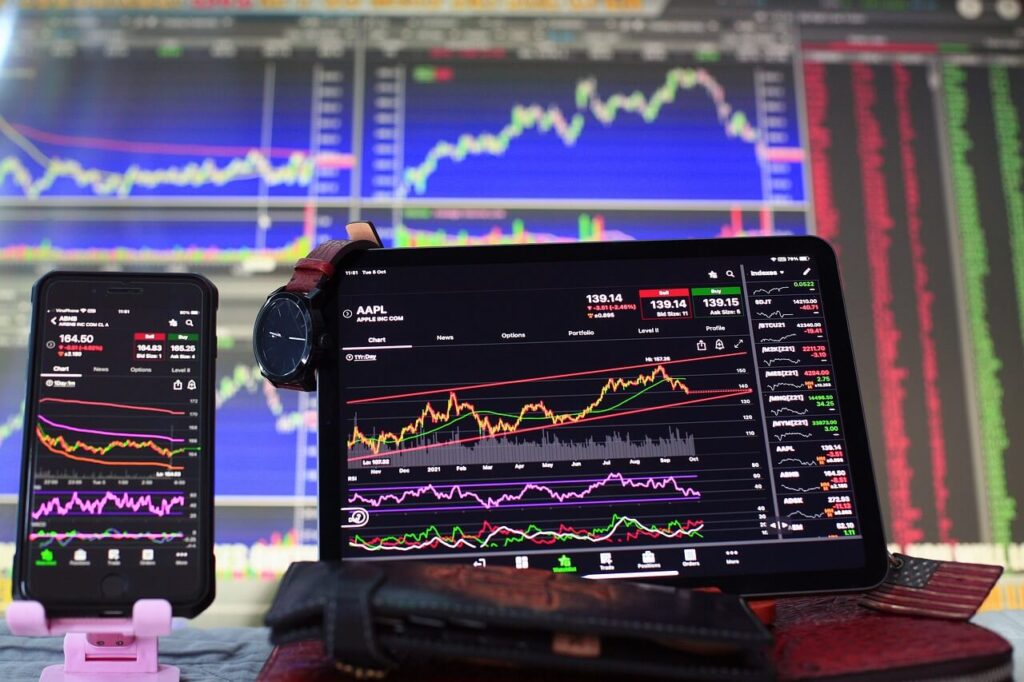
Trading decisions are influenced by a myriad of factors that can range from microeconomic indicators to geopolitical events. Successful trading requires an understanding of these influences and their interactions. This article aims to delve into the different types of events that can influence trading decisions, focusing particularly on the role of fundamental analysis in trading.
Understanding Trading Influences

At its core, trading is based on the simple concept of buying low and selling high. However, defining what ‘low’ or ‘high’ constitutes is a complex process that is influenced by numerous factors. These factors can be broadly divided into two groups: technical factors and fundamental factors. The technical aspect is determined by charting tools like footprint chart trading, while the fundamental analysis implies following the news carefully.
In other words, technical factors involve the analysis of market trends, price patterns, and other statistical data. In contrast, fundamental factors involve the evaluation of a company’s financial health, industry conditions, and broader economic indicators. This article will focus on the latter – the fundamental factors.
Fundamental Analysis in Trading

Fundamental analysis is a method used by traders to measure the intrinsic value of an investment. It involves examining related economic, financial, and other qualitative and quantitative factors. Fundamental analysts study anything that can affect a security’s value, including macroeconomic factors like the overall economy and industry conditions, and company-specific factors like financial condition and management.
The goal of fundamental analysis is not just to predict future stock prices but to understand the economic forces behind those prices. By understanding the cause-and-effect relationships in the financial markets, traders can make more informed decisions about their investments.
Fundamental analysis can be further segregated into two categories: top-down and bottom-up. The top-down analysis starts with the global economy and then narrows down to specific sectors and companies. Conversely, the bottom-up analysis starts with individual companies and then widens its scope to take into account wider industry and economic factors.
Types of Events Affecting Trading Decisions

- Macroeconomic Indicators: These involve broad economic factors that can influence trading decisions. They include indicators such as GDP growth rates, unemployment rates, inflation rates, and interest rates. A strong GDP growth rate might indicate a robust economy, which can lead to higher corporate profits and thus be positive for stock prices. Conversely, high unemployment rates might suggest an economic downturn, potentially leading to lower stock prices.
- Company-Specific Events: These are events that directly impact a specific company. They include earnings reports, changes in senior management, product launches, mergers and acquisitions, and corporate restructuring. A positive earnings report can lead to a surge in the company’s stock price, while a sudden change in management can introduce uncertainty and potentially lead to a drop in the stock price.
- Geopolitical Events: These are political events that have the potential to impact the global economy. Examples include elections, changes in government policies, political instability, wars, and conflicts. A classic example is Brexit, whose uncertainty led to significant volatility in the UK and European markets. Likewise, trade wars can disrupt global supply chains and impact various sectors differently.
- Market Sentiment: This refers to the overall attitude of investors toward a particular market or asset. It is often driven by news, reports, and social trends. Market sentiment can cause markets to move in a particular direction, regardless of the fundamentals. For example, positive news about a breakthrough in renewable energy technology can drive up the stock prices of companies in the renewable energy sector, even if their financials are not strong.
- Natural Disasters & Pandemics: Events like earthquakes, floods, or pandemics like COVID-19 can have a significant impact on trading decisions. They can disrupt supply chains, alter consumer behaviour, and lead to changes in government policies. The COVID-19 pandemic, for instance, led to global market volatility, with certain sectors like travel and hospitality experiencing significant declines.
The interplay of these factors
It’s important to note that these events do not operate in isolation. They interact with each other in complex ways to influence trading decisions. For example, a company might report strong earnings (a company-specific event), but its stock price might still fall due to a broader economic downturn (a macroeconomic indicator).
Understanding this interplay is a critical part of fundamental analysis. It requires traders to not only pay attention to individual events but also to understand how these events fit into the broader economic landscape.
Conclusion

In conclusion, trading decisions are multifaceted and shaped by a wide array of factors. Understanding these events and how to navigate them is crucial for successful trading.
The fundamental analysis serves as a potent tool in this endeavour, equipping traders with the ability to assess the intrinsic value of a security in light of various influencing events. By incorporating fundamental analysis into their trading strategy, traders can make more informed decisions and potentially increase their chances of achieving profitable returns.

